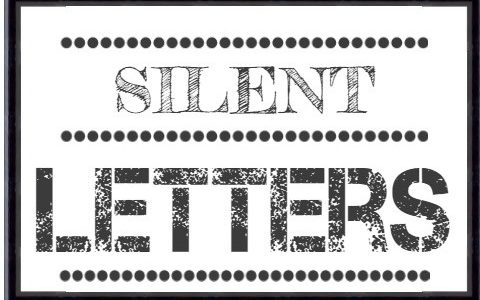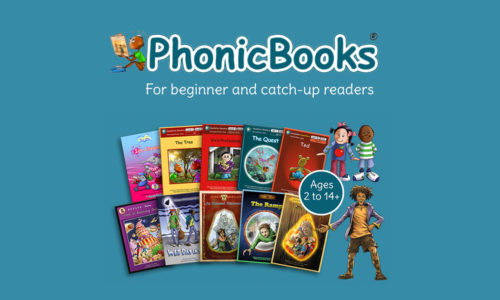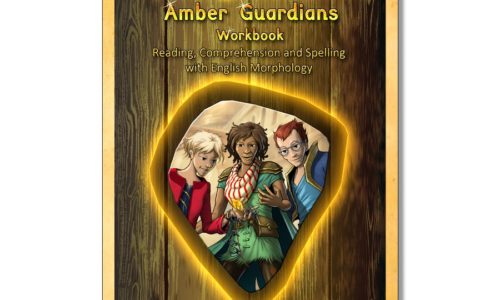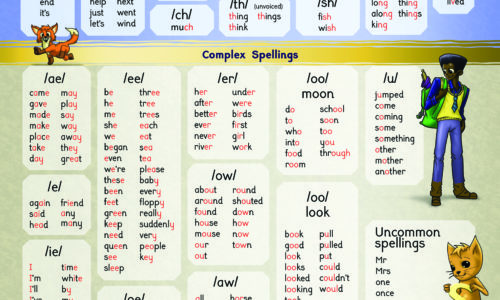Do you have children. who. r-ea-d. l-ike. th-i-s? How can we get children to read fluently? Firstly, why do we need to read fluently? We need to read fluently because it is difficult to understand what we are reading if we read in a halting way. Our working memory can’t combine all the different aspects […]
Read MoreNews & Information
Independent review of That Dog! series

We have just received this independent review from Teach Primary Magazine. The review is available online. See link below. Phonic Books – That Dog! for catch-up readers across the school. At a glance: • Age appropriate, synthetic phonic catch-up reading books with decodable text for pupils who can read CVC words • Controlled language […]
Read MoreOur new books being used at the Sounds-write Reading Centre

We’re delighted to see that our latest series That Dog! is being used by the Sounds-write Reading Centre. These modern-day stories with contemporary illustrations are designed to engage older readers and follow the same phonic progression as our Magic Belt Series. The decodable text with a gradual increase in reading difficulty builds confidence whilst improving […]
Read MoreTeaching ‘Silent’ letters

Do you teach ‘silent letters’? Read what the Literacy Blog has to say about them. http://www.thereadingcentre.com/2011/11/26/silent-letters/
Read MoreTop tips for teaching phonics

Teach step-by-step You don’t need to teach the whole alphabet to get reading going. Start with just a few letters, and get children to build words from them. Phonic Books starts with ‘s’, ‘a’, ‘t’, ‘i’ and ‘m’. Work with word-building Word-building is the best way to teach reading and spelling. Write letters on cards […]
Read MoreHow to use decodable books

Decodable books are controlled texts that beginner readers can read independently once they have been taught the spellings in the text. Children learning to read with phonics benefit from reading decodable texts because these texts allow them to practice what they have been taught and experience success. They also help children develop an effective strategy […]
Read MoreSounds-Write Training programme in Zambia is a success

Director, Clair Baker and Frances Woodward of Forward with Phonics have spent the last couple of weeks training teachers and volunteers in Lusaka and Mongu, Zambia in the Sounds-Write Reading and Spelling Programme. Many of the attendees were volunteers who are aiming to teach the women in their community to read. Whilst Phonic Books donated our […]
Read MoreComprehension is only as good as one’s vocabulary

Comprehension is only as good as one’s vocabulary. So, is there any point in comprehension exercises? Should we be focusing on building meaningful vocabulary? Read this thought-provoking blog by Solomon Kingsworth. https://medium.com/@solomon_teach/small-is-beautiful-part-two-5fe2cd58f1fc
Read MoreUsing morphology to teach word structure

Do you have children who spell the word ‘jumped’ as ‘jumpt’, and ‘wanted’ as ‘wantid’? This is because they are listening to the sounds at the ends of words. After all, we tell them to listen to sounds when they spell. Sometimes, it is very helpful to bring a bit of morphology into the teaching […]
Read More300 high-frequency word phonic chart

Do your children forget spellings from one week to the next? Many teachers issue spelling lists each week only to find that a week or two down the road the children have already forgotten them. At Phonic Books we believe that teaching children the first 300 high-frequency words in a way that links up with […]
Read More
